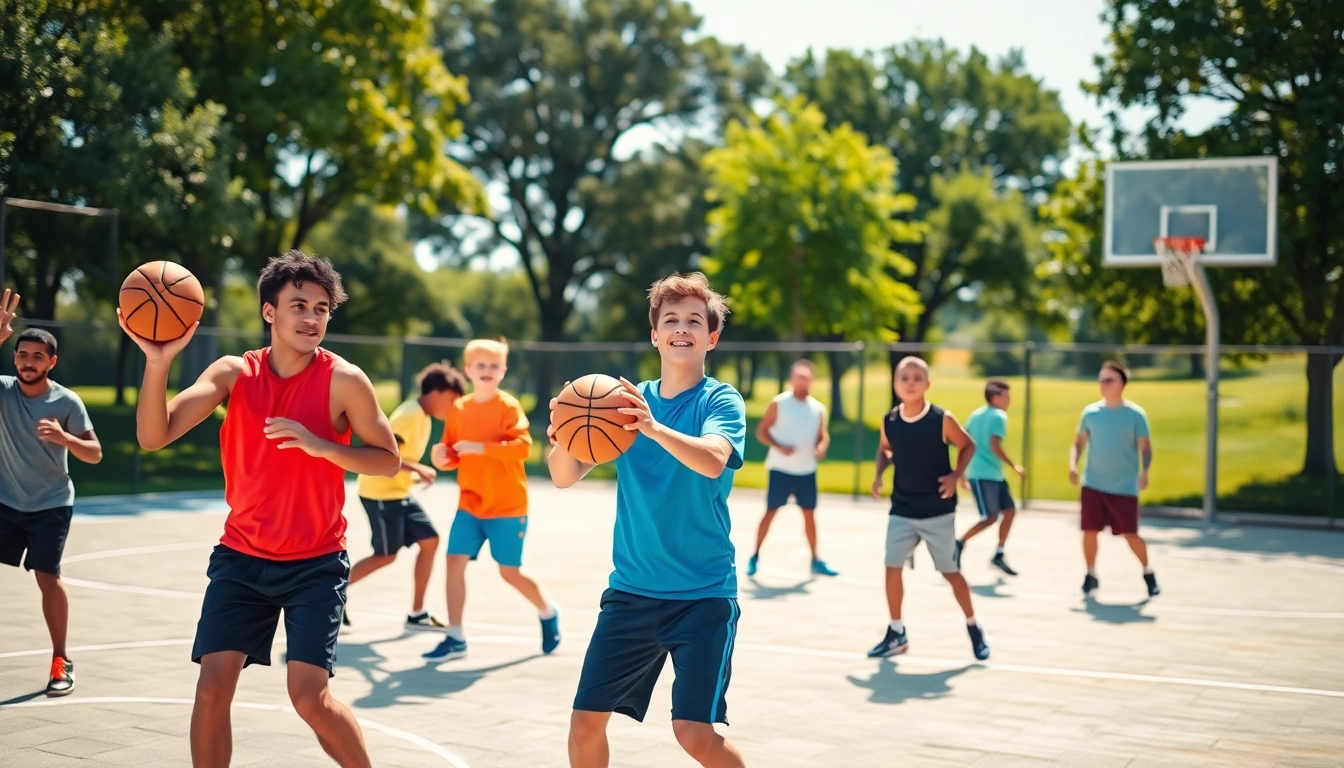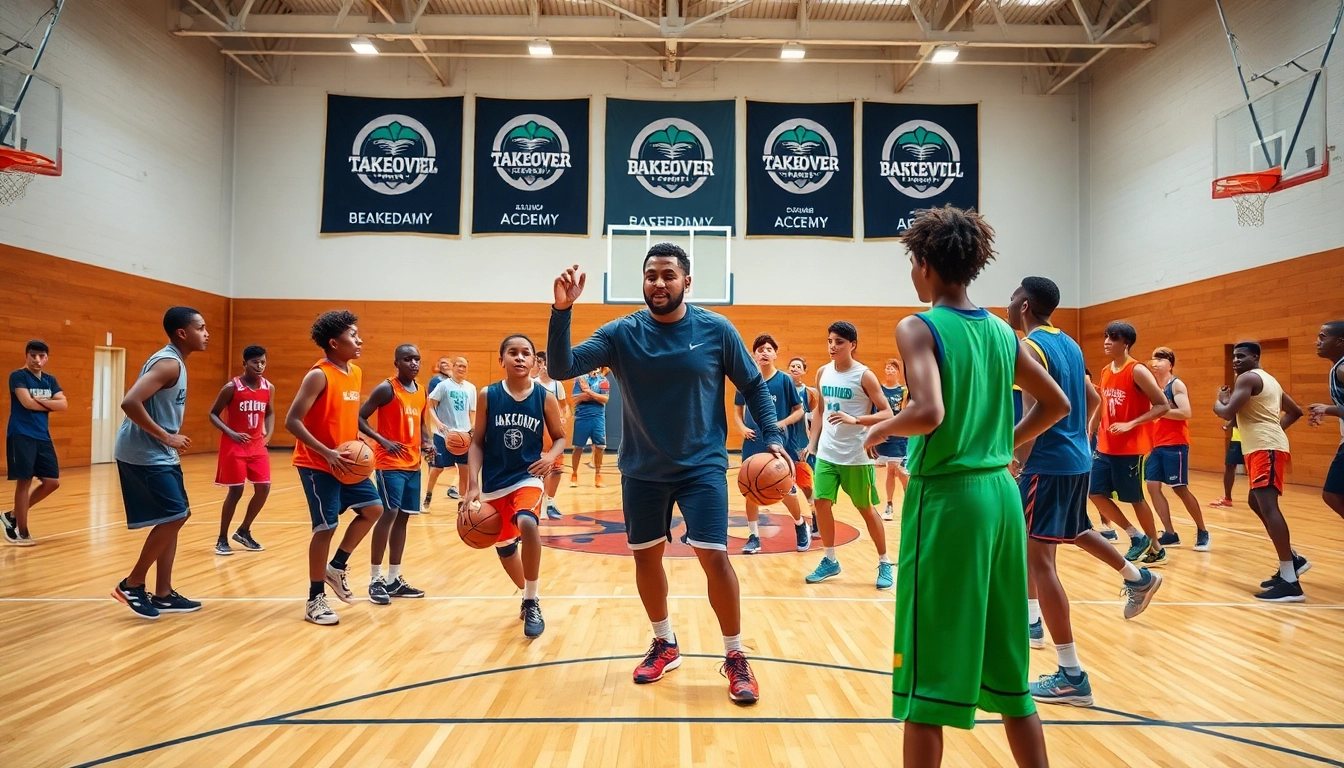Understanding Basketball Training Programs
Basketball training programs encompass a wide array of training regimens designed to develop players’ skills and enhance their overall performance on the court. With basketball being a highly competitive sport, the right training program can make a significant difference in a player’s development. This article will explore various aspects of these training programs, focusing on what they entail and their importance in skill development.
What Are Basketball Training Programs?
Basketball training programs are structured frameworks aimed at improving specific skills essential for playing the game effectively. These programs vary in focus from foundational skills such as shooting and passing to advanced tactics, including defensive maneuvers and game strategies. They are designed for players at all skill levels, from beginners who are just starting to seasoned athletes looking to refine their techniques.
Importance of Skill Development
The essence of basketball lies in the mastery of skills. Skill development is crucial because it allows players to perform well during games, leading to better teamwork and game results. Effective training programs provide players with the tools necessary to improve their technique, shooting precision, defensive awareness, and overall basketball IQ. As noted in various expert reviews, engaging in structured training can significantly enhance a player’s performance and confidence.
Choosing the Right Program for Your Level
Selecting the appropriate training program begins with evaluating a player’s current skill level and their long-term basketball goals. Players must consider their strengths and weaknesses to find programs that best suit their needs. For example, beginners might benefit from basic skill-building programs, while more advanced players could seek specialized training that focuses on specific areas, such as agility training or advanced shooting techniques. Programs like best basketball training programs serve as excellent starting points for mapping out a personalized training journey.
Key Features of the Best Basketball Training Programs
To stand out among countless offerings, certain features define the most effective basketball training programs. Players looking to improve should prioritize programs that incorporate these key aspects.
Comprehensive Skill Assessment
The best basketball training programs start with an extensive skill assessment. This initial evaluation allows coaches to understand each player’s baseline abilities and identify areas needing improvement. Through drills and gameplay observations, coaches can provide tailored feedback and create a personalized training plan. This process ensures that players receive focused practice on skills that will have the most significant impact on their performance.
Structured Training Regimens
Effective training programs feature structured regimens that guide players through a progression of skills. Each session should build upon previous ones, gradually increasing in difficulty and complexity. Structured regimens often include a mixture of drills that cover essential aspects of the game such as shooting, dribbling, passing, and defense. Programs that incorporate periodization—planning training cycles—can also optimize performance and recovery, ensuring players peak at the right time.
Personalized Coaching and Feedback
One-on-one coaching and consistent feedback are vital components of high-quality training. Personalized coaching allows players to receive real-time instruction tailored to their unique needs, ensuring they understand how to correct mistakes and refine their skills. Feedback can be delivered through video analysis, where coaches highlight areas for improvement visually, enhancing player comprehension. This interactive approach is prevalent in elite training programs, fostering a productive learning environment.
Popular Basketball Training Techniques
Training techniques serve as the backbone of effective basketball development. Below, we explore some of the most popular techniques that players can incorporate into their training to enhance performance on the court.
Shooting Drills and Techniques
Shooting is one of the most critical skills in basketball, and effective training hinges on mastering various shooting drills. Techniques such as the “form shooting drill,” which emphasizes proper shooting mechanics from close range, lay the foundation for more complex shots. Advanced drills, like “spot shooting” and “three-point shooting,” focus on precision and consistency from different areas on the court. Regular practice of these drills, combined with mental visualization techniques, can have a profound impact on a player’s shooting success.
Ball Handling and Dribbling Skills
Ball handling is another crucial aspect of a player’s skillset. Effective training involves a variety of dribbling drills that improve players’ control over the ball. Drills like “crossover moves,” “in-and-out dribbles,” and “between-the-legs dribbles” enhance a player’s ability to navigate through defenders and create scoring opportunities. Players can elevate their ball-handling skills by practicing these techniques in dynamic game-like situations, which challenges their spatial awareness and coordination.
Defensive Maneuvers and Strategies
Defense is essential for a well-rounded basketball player. Training programs must include defensive drills that help players develop vital skills such as positioning, footwork, and lateral movement. Techniques such as “close-out drills” and “shadow drills” enable players to improve their defensive anticipation and reaction times. Understanding offensive patterns also allows players to anticipate opponents’ moves, making defensive strategies more effective.
How to Maximize Your Training Experience
Maximizing the benefits of basketball training programs involves several strategies players can implement to ensure they get the most out of their efforts. Below are some crucial tips for athletes looking to enhance their training experience.
Setting Realistic Goals
Setting achievable goals is fundamental for any athlete. Players should establish clear, measurable outcomes they want to achieve through their training. Goals could range from improving free-throw percentages to mastering a specific fundamental skill by the end of the season. Having a timeline spurs motivation and accountability and helps players remain focused on their path to improvement.
Maintaining a Consistent Training Schedule
Consistency is vital for skill development. Creating a weekly training schedule that includes practice sessions, conditioning, and recovery periods allows players to establish a disciplined routine. Regular practice ensures that players have continual opportunities to build upon the skills they are learning and to address any weaknesses. By adhering to a consistent training regimen, players will not only see improvement in skills but also bolster their confidence on the court.
Tracking Progress and Achievements
Maintaining a detailed log of training sessions, achievements, and areas of improvement is an invaluable practice for athletes. By tracking their progress over time, players can visually see their growth in various skills, which boosts motivation. This could be as simple as keeping notes in a journal or utilizing apps that track performance metrics and improvement over time.
Combining Physical Fitness with Skill Training
While skill development is paramount, combining physical fitness training with skill-focused practice is essential for overall athletic performance. Basketball players must be in peak physical condition to perform at their best throughout the grueling demands of the game.
Importance of Endurance and Strength
Endurance and strength are critical components of basketball performance. Specific training routines that focus on cardiovascular endurance improve a player’s stamina during games, while strength training enhances overall physicality. Exercises targeting core strength, leg strength, and explosive power contribute to improved shooting, driving, and defending skills. Implementing a balanced workout regime that includes strength training, agility drills, and flexibility exercises produces well-rounded athletes capable of sustaining intense physical activity.
Nutrition for Basketball Players
Nutrition plays a vital role in an athlete’s performance and recovery. Consuming a well-balanced diet rich in carbohydrates, proteins, and healthy fats provides the necessary nutrients for energy production and recovery. Hydration is equally important; players must stay hydrated before, during, and after training to maintain peak performance levels. Working with a sports nutritionist can provide tailored dietary plans to meet an athlete’s specific needs, optimizing their training efforts.
Recovery Techniques to Enhance Performance
Incorporating recovery techniques into a training routine is essential for ongoing improvement and injury prevention. Methods such as active recovery, stretching, foam rolling, and adequate sleep allow muscles the necessary time to repair and regenerate. Techniques like ice baths, massage therapy, and contrast baths emerge as popular choices among athletes for alleviating soreness and reducing recovery time, thus enabling players to return to training stronger and more prepared.









Leave a Reply